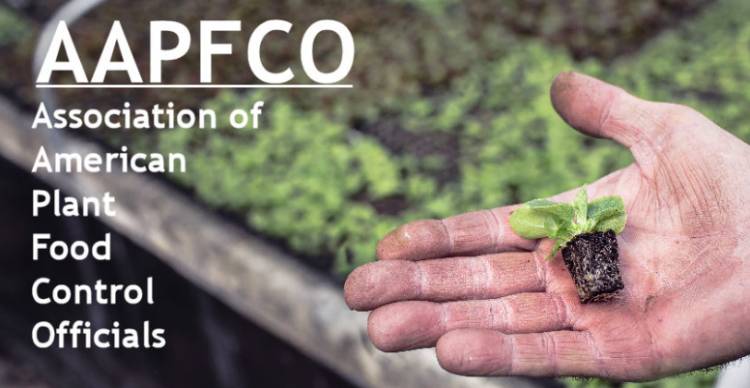Biochar Labeling & US Certifications
Due to the relative newness of the biochar industry, regulations and standards for labeling and certifications are still emerging. Buyers and sellers should be aware of current standards and what they do and do not represent.

Due to the relative newness of the biochar industry, regulations and standards for labeling and certifications are still emerging. Buyers and sellers should be aware of current standards and what they do and do not represent.
AAPFCO
The Association of American Plant Food Control Officials (AAPFCO) is a membership organization of State- and Province-level Departments of Agriculture covering the US & Canada. The organization seeks consensus and develops models for legislation, analysis, standards, labeling and safe use of feed, fertilizer and soil amendments.
After several years of education and lobbying by the IBI and USBI, AAPFCO approved an official definition of biochar for labeling in 2016. This definition applies to registration, labeling and product claims in the US, Canada and Puerto Rico. The definition that was approved is:
Biochar - is a solid material obtained from thermochemical conversion of biomass in an oxygen-limited environment (pyrolysis) containing at least 60% carbon. Feedstocks may be composed of crop residue, wood or other forest waste, and animal manures. Materials transported in salt water, painted, or treated with preservatives are not permitted. When listing biochar in an ingredient statement, the feedstock shall be designated by prefixing the term biochar with the feedstock from which it was produced; i.e. poultry litter biochar, green waste biochar, papermill biochar, etc. When more than one feedstock is involved, all feedstocks greater than 10% of the total volume are to be listed by decreasing volume. Their uses include soil amendments.
The 60% minimum carbon content level is somewhat arbitrary and various producers within the biochar industry would like this threshold to be lowered so that additional feedstocks including manures, crop residues and biosolids could be included.
Currently, 38 States have regulations related to soil amendments, although to date few have officially adopted specific regulation related to biochar. One exception is the California Department of Food & Agriculture (CDFA) which adopted the AAPFCO biochar definition in full.
Biochar producers selling biochar that meets the 60% minimum standard must register their product through their State’s Department of Agriculture (DOA). In California, this process can take up to 6 months for a standard registration and longer if organic certification is sought. Registration fees are $500 for two years. Other states, such as Washington, may tweak the AAPFCO definition slightly to include heavy metal thresholds.
Failure to register labels with the relevant State DOA may result in products being pulled from shelves. While the registration process can be complicated, especially for newcomers to the industry, there are consultants such as Ron Alexander, whose company R. Alexander & Associates is dedicated to working with companies throughout the process.
A growing number of U.S. biochar producers are finding value in the voluntary BioPreferred program established and administered by the U.S. Department of Agriculture (USDA) to reduce the use of, and reliance on, products made from fossil fuels while increasing the use of innovative products made from renewable agricultural crops and residues with an eye towards building markets, jobs and economic opportunity for farm, forest and ocean-derived organic commodities.
To qualify for the BioBased Product Label, products and/or packaging must meet minimum thresholds for carbon content for the relevant product category. All products must have a minimum carbon content of 25% but they must also meet the minimum carbon content for their particular product category. Currently, there are 109 different product categories ranging from raw materials to finished products. Biochar is categorized as a Soil Amendment which also has a minimum threshold of 25% carbon.
Producers are required to have their products tested by qualified, independent laboratories which will submit results directly to the USDA for certification. Testing costs are generally less than US$500 per sample. Typically, the certification process takes 60 days and once approved producers can use the USDA-Certified BioBased label showing the carbon content of their product.
In addition to marketing benefits related to BioBased products, certified products are given preferential treatment under the Federal procurement process.
For further information on certifying your biochar products, please visit biopreferred.gov. To find biochar product certified under this program, search the BioPreferred Catalog.
OMRI
The Organics Materials Review (OMRI) also certifies biochar under their ‘ash’ or ‘wood ash’ categories, both of which include crop fertilizer and soil amendments. Ash may be derived from plant and animal sources. For wood ash, only untreated and unpainted wood is allowed. Ash from minerals and manures are specifically prohibited.
The predominant focus for OMRI, beyond organic feedstock, is on safety. They specifically test for three heavy metals: cadmium (Cd), lead (Pb) and arsenic (As). OMRI certification does not assess credibility (or legality) of any other claims on product labels.
OMRI certification annual cost is based on the gross income of the company. Fees for small producers are generally less than US$1K for the first year and half of that amount for subsequent years.
















